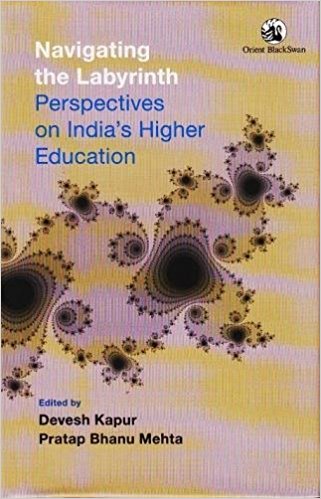It is hard to remember a time when ‘Higher Education’ in India was not in a ‘state of crisis’. It is equally difficult to meet a ‘stakeholder’ in the system—student, teacher, administrator, policy maker, prospective employer, educational entrepreneur, consultant or lobbyist—who would not complain about how ineffective, inefficient, corrupt, expensive, exploitative, unjust, unimaginative and soul crushing the system is. All of them concur that the existing order is unviable. However, each of these groups offer a diagnosis which blames the other and demand that the overhaul should start from there. It is near impossible to grasp this broken world of higher education, because it is a world reflected through a fragmented mirror of special interests. The universe of higher education is a forest of agendas and interests.
The edited volume under review by Pratap Bhanu Mehta and Devesh Kapur offers a guide to navigating this labyrinth. All the essays in this volume share a broad perspective, with the possible exception of Apoorvanand Jha’s essay tracing the trajectory of higher education in Bihar. They not only have similar concerns but also propose or imply comparable solutions to overcome the current crisis. The editors of the volume have done a fine job of stating this common vision and key policy prescriptions emanating out of it cogently in the introduction.

